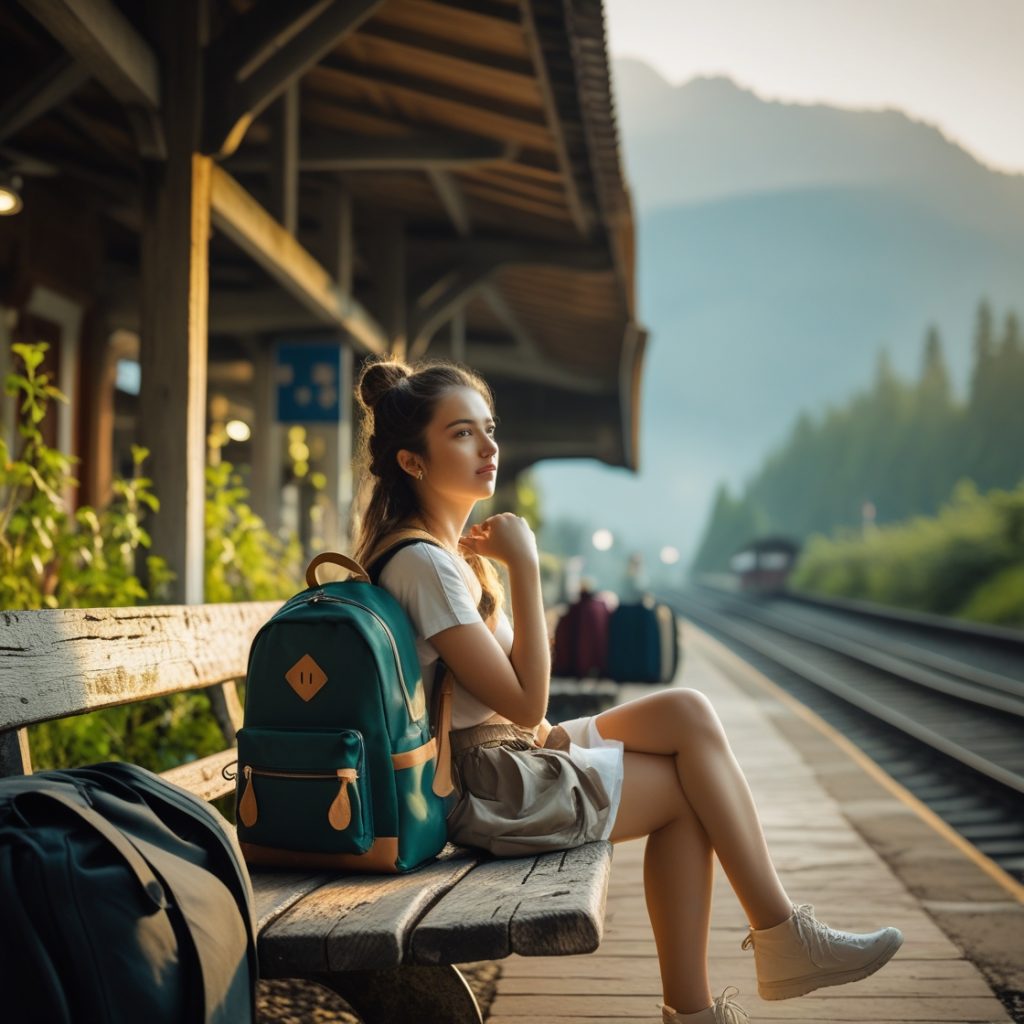Traveling alone is a unique and transformative experience. For many, it might seem intimidating at first—being in an unfamiliar place without companions to lean on. However, for those who dare to take the leap, solo travel offers unparalleled opportunities for self-discovery, independence, and a deeper connection to the world. In this article, we will explore the many dimensions of traveling alone, including its benefits, challenges, and tips for making the most of the journey.
The Freedom of Solo Travel
One of the most appealing aspects of traveling alone is the freedom it provides. When you’re by yourself, you are the sole architect of your journey. There are no compromises on where to go, what to eat, or how long to stay in one place. Want to spend an entire day wandering through a museum or sipping coffee at a small café? Go ahead. Prefer to wake up at sunrise to hike a mountain? The choice is entirely yours.
This autonomy allows solo travelers to craft experiences that align perfectly with their desires and interests. Whether you’re drawn to bustling cities, serene beaches, or remote villages, solo travel lets you immerse yourself in your surroundings without distractions.
The Path to Self-Discovery
Traveling alone provides a unique opportunity for introspection and self-discovery. When you step away from your daily routine and the people who know you best, you’re free to explore who you are without external influences.
For many, being alone in a foreign environment can be a mirror, reflecting personal strengths and weaknesses. Are you adaptable under pressure? How do you react when plans go awry? Solo travel challenges you to navigate unfamiliar situations, solve problems, and embrace uncertainty—all of which contribute to personal growth.
Additionally, spending time alone fosters mindfulness. With no one else to divert your attention, you become more attuned to your surroundings. The sound of waves crashing on a shore, the vibrant colors of a local market, or the laughter of strangers in a park—these small moments often leave lasting impressions.
Building Confidence and Independence
There’s no greater confidence boost than realizing you can thrive on your own in an unfamiliar place. Traveling alone forces you to rely on your instincts and decision-making abilities. Each successful navigation of a foreign city, each meaningful conversation in a language not your own, and each small victory—such as finding a hidden gem of a restaurant—reinforces your belief in your capabilities.
This newfound confidence extends beyond travel. It permeates other areas of life, empowering you to tackle challenges with a greater sense of self-assurance. Many solo travelers return home with a stronger belief in their ability to overcome obstacles and a renewed sense of independence.
Cultural Immersion and Connection
Traveling alone often leads to deeper connections with the places you visit and the people you meet. Without the comfort of familiar company, you’re more likely to engage with locals, participate in cultural activities, and step outside your comfort zone.
Solo travelers often find themselves forming meaningful relationships with people they might not have interacted with otherwise. A chat with a shopkeeper, a shared meal with fellow travelers, or an invitation to a local celebration can all create memorable experiences. These interactions enrich your understanding of the destination and leave you with stories to share long after the journey ends.
Challenges of Traveling Alone
While the rewards of solo travel are abundant, it’s not without its challenges. One common hurdle is loneliness. There may be moments when you wish for someone to share the beauty of a sunset or laugh with over an unexpected mishap. However, these moments can be opportunities to practice self-compassion and embrace solitude.
Safety is another concern for many solo travelers, particularly women. While the majority of journeys are uneventful, it’s essential to take precautions such as researching destinations, avoiding risky areas, and staying alert. Trusting your instincts is crucial—if something feels off, it’s better to err on the side of caution.
Another challenge is decision fatigue. Being solely responsible for all travel plans, from accommodation to daily activities, can be overwhelming. To combat this, it’s helpful to strike a balance between planning and spontaneity. Having a loose itinerary allows for flexibility while reducing the stress of constant decision-making.
Tips for a Successful Solo Trip
- Start Small
If you’re new to solo travel, begin with a destination closer to home or one known for being traveler-friendly. This will help you ease into the experience and build confidence. - Plan Ahead
Research your destination thoroughly, including local customs, transportation options, and safety tips. Having a rough itinerary can help you feel more prepared. - Pack Light
Traveling alone often involves carrying your own bags, so it’s best to pack light. Choose versatile clothing and essentials that make your journey easier. - Stay Connected
Keep in touch with loved ones back home by sharing your plans and checking in regularly. This provides both safety and emotional support. - Embrace Solitude
Use your alone time for reflection, journaling, or simply enjoying the moment. Solitude can be incredibly fulfilling when embraced with an open mind. - Be Open to New Experiences
Say yes to opportunities that come your way, whether it’s trying a new dish, attending a local event, or exploring a hidden corner of the city. These experiences often become the highlights of your trip. - Trust Your Instincts
Your gut is a powerful tool. If something doesn’t feel right, don’t hesitate to change your plans or seek help.
The Transformative Power of Solo Travel
Solo travel isn’t just about seeing new places—it’s about seeing the world and yourself in a new light. It’s an invitation to step out of your comfort zone, challenge preconceived notions, and embrace the unknown. While it may feel daunting at first, the rewards far outweigh the risks.
As you navigate unfamiliar streets, learn from different cultures, and meet people with perspectives vastly different from your own, you’ll discover a richer, more vibrant world. More importantly, you’ll discover yourself—your resilience, your adaptability, and your capacity for growth.
Whether it’s a weekend getaway or a months-long journey, traveling alone is an experience that leaves a lasting imprint. It teaches you to cherish your own company, trust your instincts, and find joy in the simple pleasures of exploration.
Traveling alone isn’t just about the destinations—it’s about the journey within. By embracing the challenges and celebrating the victories, you’ll return home not just with memories, but with a renewed sense of purpose and confidence. So pack your bags, set your sights on the horizon, and embark on the adventure of a lifetime. After all, the world is waiting, and it’s yours to explore.



